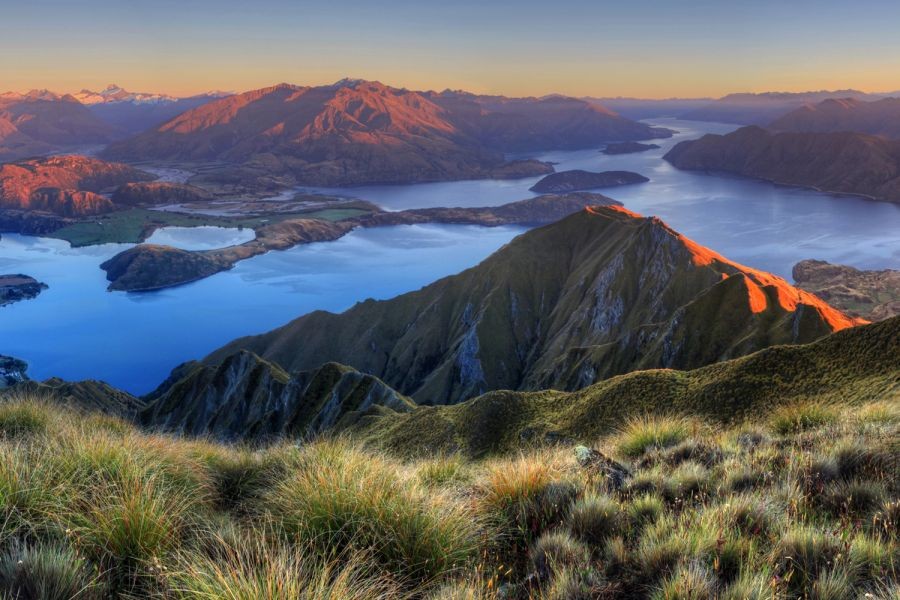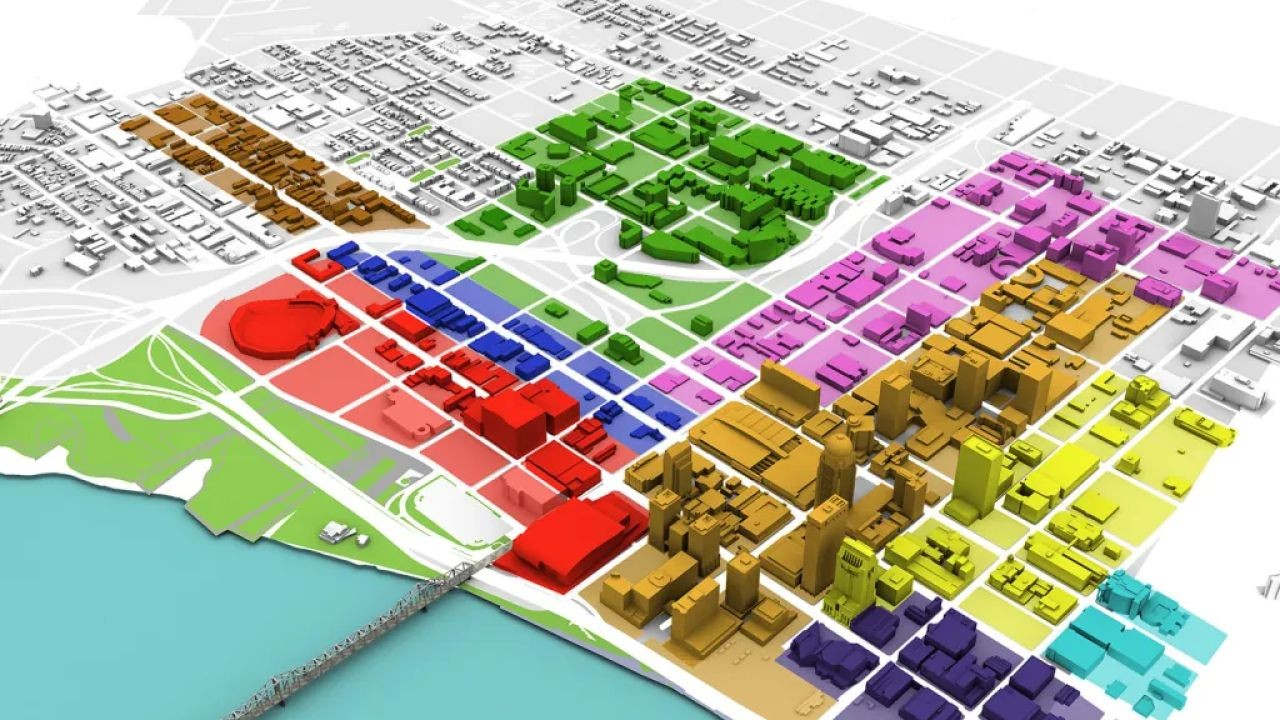In the intricate tapestry of Pacific Island affairs, New Zealand plays a pivotal role as a key influencer and partner. This nation, renowned for its commitment to regional stability and development, stands at the forefront of initiatives that drive progress across the Pacific. From economic collaborations to cultural exchanges, New Zealand's impact is both profound and multifaceted. This article delves into the top ten ways New Zealand is shaping Pacific Island affairs, providing insights that resonate with Kiwi journalists seeking a deeper understanding of their nation's regional influence.
1. Economic Partnerships and Trade Agreements
New Zealand has a long history of fostering economic partnerships in the Pacific. The PACER Plus agreement, a trade and development treaty, exemplifies New Zealand's commitment to economic integration and growth among Pacific nations. This agreement not only facilitates trade but also supports sustainable development through aid and investment, benefiting both New Zealand and its Pacific partners.
Case Study: New Zealand and Samoa
In Samoa, New Zealand's economic influence is evident through various initiatives. The Samoa-New Zealand Business Council has played a pivotal role in promoting trade and investment between the two countries. This partnership has resulted in a 20% increase in bilateral trade since 2018, showcasing the tangible benefits of such economic collaborations.
2. Climate Change Leadership
New Zealand is acutely aware of the vulnerabilities Pacific Island nations face due to climate change. As a proactive leader in climate action, New Zealand collaborates with Pacific nations to address climate-related challenges. Initiatives like the Pacific Climate Change Centre, supported by New Zealand, provide critical resources and expertise to tackle the effects of climate change.
Data Insight
According to the Reserve Bank of New Zealand, the government has committed over NZD 300 million in climate-related aid to Pacific nations over the next five years. This substantial investment underscores New Zealand's dedication to mitigating climate impacts in the region.
3. Educational and Cultural Exchanges
New Zealand's educational and cultural exchanges with Pacific Island nations strengthen ties and foster mutual understanding. Programs such as the Manaaki New Zealand Scholarship provide educational opportunities for Pacific students, enabling them to gain valuable skills and knowledge.
Real-World Example: Fijian Students in New Zealand
New Zealand has welcomed a growing number of Fijian students, with over 500 students currently enrolled in various educational programs. These students return home equipped with skills that contribute to their communities and bolster New Zealand's reputation as a center for educational excellence.
4. Humanitarian Aid and Disaster Relief
New Zealand is a key player in providing humanitarian aid and disaster relief in the Pacific. The nation swiftly responds to natural disasters, offering financial assistance and logistical support. The New Zealand Defence Force often collaborates with Pacific partners to deliver aid and ensure effective disaster response.
Case Study: Cyclone Gita Relief Efforts
When Cyclone Gita struck Tonga in 2018, New Zealand was among the first to respond. The government allocated NZD 2.5 million for immediate relief efforts, including the deployment of aircraft and personnel to deliver essential supplies. This prompt action highlights New Zealand's commitment to supporting its Pacific neighbors in times of crisis.
5. Health and Medical Assistance
New Zealand's contributions to healthcare in the Pacific are significant. The nation provides both financial support and medical expertise through various health initiatives. Programs like the New Zealand Medical Treatment Scheme ensure that Pacific Islanders receive vital medical care, often unavailable in their home countries.
Expert Insight
Dr. Sarah Thompson, a public health expert, emphasizes, "New Zealand's healthcare partnerships in the Pacific are crucial for addressing health disparities and improving overall well-being in the region."
6. Regional Security and Defense Cooperation
As a stable and secure region benefits all, New Zealand actively collaborates with Pacific nations on defense and security matters. The Pacific Reset policy outlines New Zealand's commitment to enhancing regional security through joint training exercises and capacity-building initiatives.
Contrasting Viewpoints
While some critics argue that New Zealand's defense presence might overshadow its Pacific partners, others highlight the mutual benefits of shared security efforts. The consensus remains that strategic cooperation enhances regional stability and resilience.
7. Sustainable Development Initiatives
New Zealand champions sustainable development in the Pacific, focusing on renewable energy projects and sustainable agriculture. The Pacific Energy Conference, co-hosted by New Zealand, promotes renewable energy solutions that reduce reliance on fossil fuels.
Pros vs. Cons of Renewable Energy Initiatives
- Pros: Reduced carbon emissions, long-term cost savings, energy independence.
- Cons: High initial setup costs, maintenance challenges, technology adaptation issues.
8. Cultural Preservation and Promotion
New Zealand actively supports the preservation and promotion of Pacific cultures. Initiatives like the Pacific Arts and Culture Fund empower Pacific artists and cultural practitioners to showcase their work on a global stage, fostering cultural pride and exchange.
Myth vs. Reality
Myth: Cultural preservation is solely the responsibility of Pacific nations.
Reality: New Zealand's support plays a crucial role in safeguarding and promoting Pacific cultural heritage.
9. Infrastructure Development and Connectivity
Improving infrastructure and connectivity is vital for economic growth and development in the Pacific. New Zealand invests in infrastructure projects, such as the Pacific Connectivity Project, which enhances internet connectivity and digital access in remote areas.
Future Trends
By 2025, New Zealand aims to expand its digital infrastructure initiatives, ensuring broader access to digital services across Pacific Island nations, thereby bridging the digital divide.
10. Political and Diplomatic Support
New Zealand's diplomatic efforts in the Pacific strengthen regional cooperation and political stability. The nation advocates for Pacific interests on international platforms, ensuring that Pacific voices are heard and respected.
Final Takeaway
New Zealand's multifaceted impact on Pacific Island affairs is a testament to its commitment to regional growth and stability. By fostering economic partnerships, addressing climate change, and promoting cultural exchange, New Zealand continues to play a pivotal role in shaping a prosperous future for the Pacific.
What do you think? How can New Zealand further enhance its impact in the Pacific? Share your thoughts and insights below!
People Also Ask
- How does New Zealand's trade agreements impact Pacific Island nations? New Zealand's trade agreements, such as PACER Plus, boost economic growth for Pacific nations by facilitating trade and investment, leading to increased regional economic integration.
- What is New Zealand's role in Pacific climate change initiatives? New Zealand leads climate action by supporting projects like the Pacific Climate Change Centre, providing resources and expertise to address climate-related challenges in the region.
- How does New Zealand support cultural preservation in the Pacific? Through initiatives like the Pacific Arts and Culture Fund, New Zealand empowers Pacific artists to showcase their work globally, fostering cultural pride and exchange.
Related Search Queries
- New Zealand Pacific trade agreements
- Climate change initiatives in the Pacific
- New Zealand cultural exchanges with Pacific Islands
- Humanitarian aid in the Pacific
- New Zealand's role in Pacific regional security
































randellgotch30
9 months ago